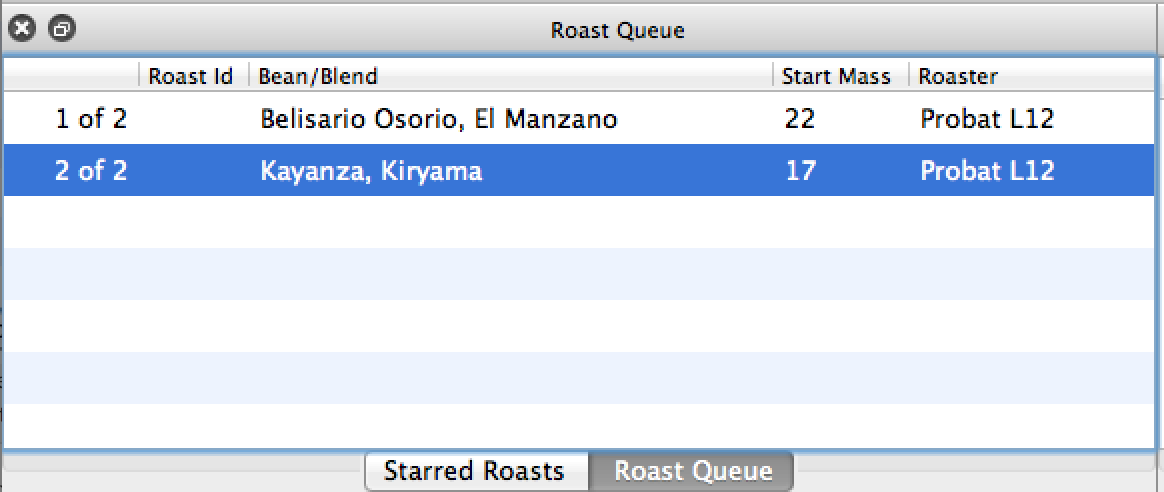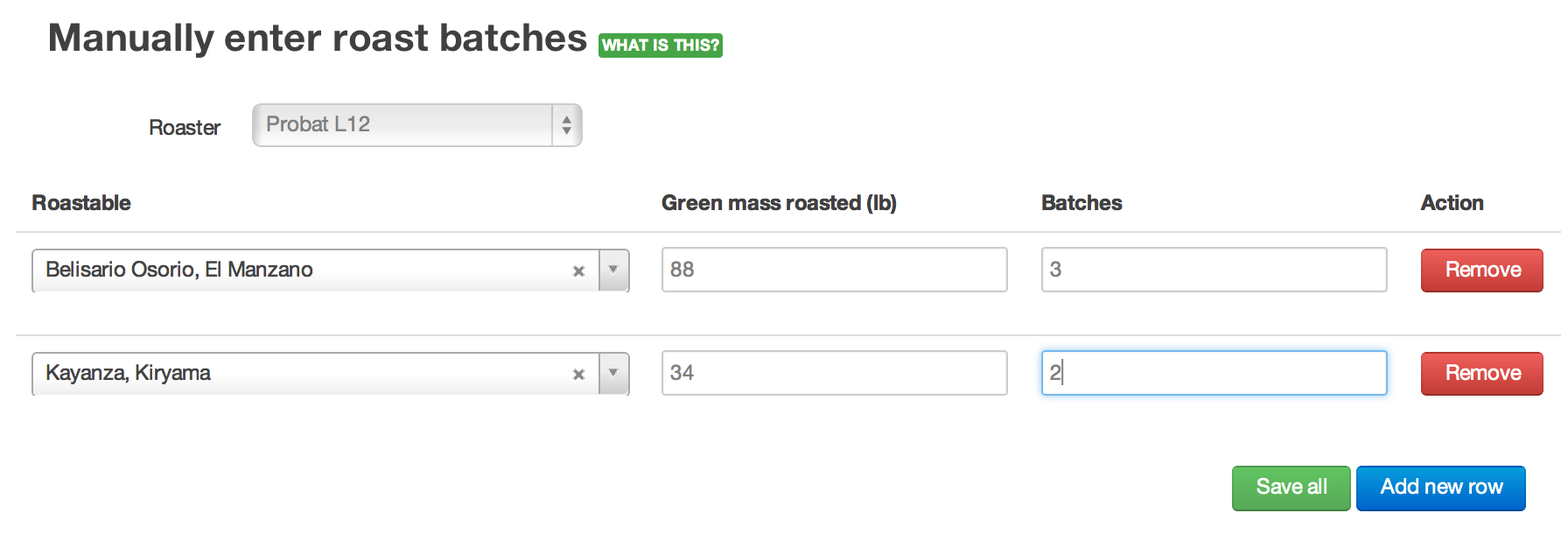From day one, RoastLogger, our client application used for recording roast profiles, has had a “Roast Queue”. The idea behind it is pretty simple. When you start your roasting day, you know what you’re going to be roasting and, roughly, in what order. The Roast Queue provides a visual record and reminder of what you’ve done, what you’re doing and what you still need to do.

The Roast Queue in RoastLogger with two coffees on the queue, ready to be roasted. Each has a “Start Mass”, which will be deducted from inventory once the roast is recorded and saved.
Since RoastLog is a profiling system *and* an inventory management system, this works great. Enter the coffees and the size of each roast, and let the software do the rest. Each time a roast is saved the “Start Mass” amount is deducted from your current inventory (works with pre-roast blends too: A 50/50 Moka Java blend will deduct 50% of the start mass from your Moka, and 50% from your Java).
But what happens when someone *doesn’t* want to record one or more roasts but *still* wants their inventory to be kept up to date? The “+/- Existing Inventory” page could be used for this, but since that page was really designed for inventory reconciliation, it didn’t work very well for entering individual batches.
Enter the “Online Roast Queue”:

The online roast queue. Add a row for each coffee roasted, and the system will automatically create the correct number of roasts with the correct batch size depending on the number of batches roasted.
If you don’t feel like recording some roasts but want to keep your inventory records up-to-date, that’s no problem:
- Enter each coffee or pre-roast blend into the online roast queue
- Enter the total amount roasted for each coffee
- Enter the total number of batches for each coffee
- Click save
That’s it. In the example above, in the first row, El Manzano was roasted three times for a total quantity of 88 lbs. After hitting save, RoastLog will create three unique roasts, each with a batch size of 88 lbs ÷ 3 = 29.3 lbs. Those three roasts will show up as three unique items throughout the system. The only difference between these manually entered roasts and a roast from RoastLogger is the lack of a roast profile.
There are some big advantages to adding this feature. Mainly, we put the control in your hands. If you don’t want to record every roast but still want to track the details about your coffee inventory, you’re able to do so with very little work. If someone forgets to log a roast from RoastLogger, it’s now easy to fix that.